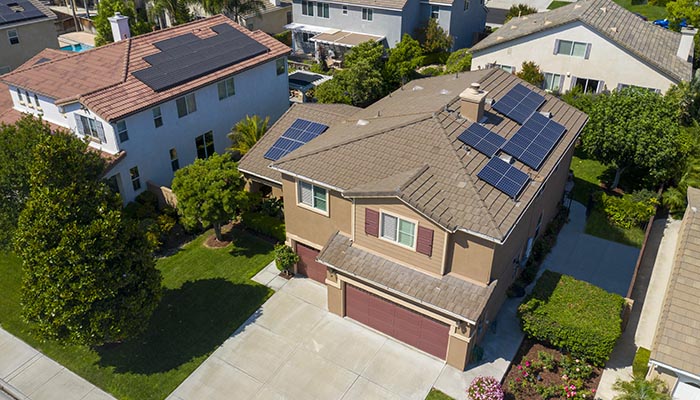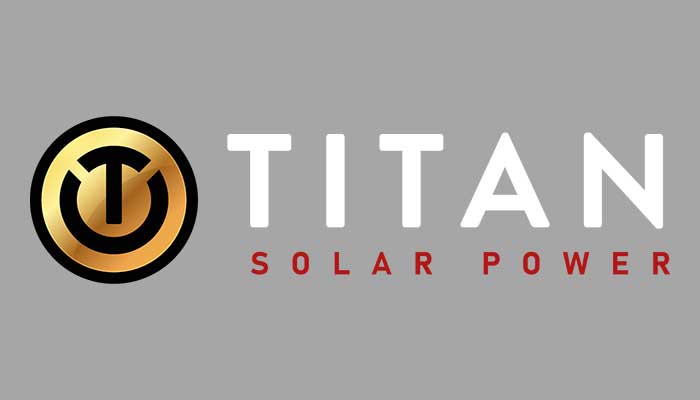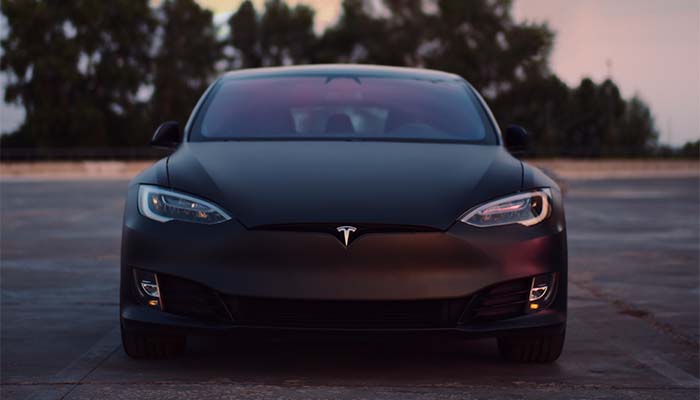
Updated December 4, 2021
People install solar panels for many reasons. Maybe you’re taking care of the environment. Maybe you want to save money on your monthly power bill. Or maybe you need backup power when the grid goes down. In the last case, you’ll need to take extra steps to ensure you have power when you need it. Solar panels won’t work in a power outage unless you have a solar battery.
Here’s everything you need to know about using your solar panels during a power outage.
Table of Contents
Grid-Tied vs. Off-Grid Solar
Whether or not your solar panels will work during a power outage depends on the type of solar system you’re using. Broadly speaking, solar power systems fall into two categories: grid-tied and off-grid.
Most home solar systems in the United States are grid-tied, which means they’re connected directly into the power grid. When your solar panels are producing more energy than you’re using, that energy gets pumped into the grid, and you get paid for it. When you’re using more energy than you’re producing, you draw power from the grid, and you’re charged for it.
This can net you significant savings on your power bill; with a powerful enough solar system, you might even make money. That said, grid-tied systems have a drawback; they’re not designed to work independently. When the grid goes down, so does the solar system.
The alternative option is an off-grid system. As you probably guessed, these systems are not connected to the power grid, so you can use them even during a power outage. On the downside, you won’t have access to grid power, so you’ll need batteries or a generator to provide power overnight.
Why Won’t Grid-Tied Solar Panels Work During a Power Outage?
At first glance, it seems weird that you can’t use a grid-tied system during an outage. As long as the sun is still shining, your panels are still producing power. So why can’t you use it?
The short answer is “safety.” With a typical grid-tied system, your solar panels are wired into an inverter, which in turn connects to the main AC panel in your house. When there’s a power outage, the inverter is programmed to automatically shut down.
When there’s a blackout, utility workers may need to perform service on the power lines. In order for them to work safely, that part of the power grid needs to be de-energized. If your solar panels are feeding power back into the grid, it could endanger those workers. Not only that, but your power might have gone out due to a downed power line. Shutting down your solar system helps ensure that the downed line isn’t a live wire.
Using a Solar Battery
Just because your solar panels are down doesn’t mean you have to be without power. One way to ensure you have a reliable supply is to install a solar backup battery. A battery system, such as the Tesla Powerwall, will automatically charge when it’s receiving solar or grid power. When there’s no power, the battery will start supplying voltage to your house.
Keep in mind that most battery backups are designed to power your house overnight. Unless you have a very large, very expensive system, you won’t be able to get through a multi-day power outage. But for everyday blackouts, you’ll have more than enough juice.
Alternatives to a Solar Battery
A solar battery backup is just one way to keep the lights on when the power is out. Here are a few other methods you might want to consider.
Using a Gas Generator
Gas generators are a tried and true method of providing backup power. They’re also one of the most affordable. For a few hundred dollars, you can buy a small generator to run your fridge and a few lights. For one or two thousand, you can install a 10,000-watt behemoth that runs almost your entire house. There’s also the cost of fuel, but for a typical power outage, we’re talking about a couple of gallons of gas.
Gas generators will run more or less indefinitely, so you can get through a longer power outage as long as you have fuel. Larger, whole-house generators will need to be hardwired, which costs extra. That said, with a smaller generator, you can just run an extension cord through your window.
Then again, gas generators have their own drawbacks. To start with, they’re one of the least environmentally-friendly ways to produce electricity, a far cry from clean, green solar energy. There are some cleaner diesel and natural gas generators available, but they cost a lot more than a gas model.
Another drawback of gas-powered generators is the noise. Even a small generator is louder than a lawnmower, and a big generator can sound like an idling 18-wheeler sitting outside your house. In other words, the only real benefit of gas generators is that they’re cheap and reliable.
Using a Solar Generator
A solar generator combines a small solar panel with a battery bank. They can also be charged from your wall outlet when the grid power is working. Best of all, they don’t cost much more than a gas-powered generator.
Keep in mind that most so-called solar generators don’t actually produce a lot of power from their built-in panels. They will require several hours of solar charging to provide a small amount of charge. If you want to use one for more than a few hours, you’ll need to buy aftermarket solar panels to increase the charging power.
Using a Specialized Inverter
Another alternative to batteries is using a specialized inverter, like the ones from SMA Sunny Boy and Enphase. These inverters will provide power to your home when the grid goes off. They do this by temporarily cutting the feed to the grid, and supplying power only to your house.
The advantage of these inverters is that they’re good for the environment. Since you’re only drawing power from your solar panels, you’re not polluting or burning any carbon-based fuels. On the other hand, you’ll still only have power when the sun is out. If there’s a blackout after sunset, you’ll still need a battery backup, or some other alternative power source.
What About Off-Grid Solar?
At this point, you might be wondering whether a grid-tied solar system really is the best choice. Why not just build an off-grid system, and use your solar panels whenever you want? While this is definitely the option, you might want to think twice.
To begin with, there’s the matter of cost. With a grid-tied solar system, you don’t need to install any storage batteries. Instead, the grid acts as your battery. With an off-grid system, batteries are a necessity. Not only that, but you won’t be able to sell excess power back to your utility company.
The other problem is that you might need more battery capacity than you think. What if it’s snowy and cloudy for an entire week? You need to have enough stored power to get you through that time. In some parts of the country, you would need to spend tens of thousands of dollars just on batteries. At that point, it makes much more sense to stick with a grid-tied system.



